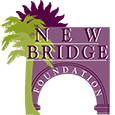Alcohol has been a common staple in households across the world for centuries. Even today, alcohol is widely available in supermarkets, restaurants, and even movie theaters. The ease of availability can make alcohol seem like a much safer substance than it is. While most people know that this substance is addictive, they may not know exactly why. Exploring alcohol’s effects can help answer a couple of questions, including is alcohol a drug?
 Is Alcohol a Drug?
Is Alcohol a Drug?
According to the Foundation for a Drug-Free World, alcohol is a drug because it alters a person’s physical and mental states. Because of alcohol’s reputation as a party drug, people often mistake it for a stimulant. However, this drug is actually a depressant. This class of drugs affects the nervous system by slowing it down, often resulting in a lack of coordination and slurred speech.
Alcohol also affects individuals’ mental capabilities. In fact, the most common reason that people drink is to loosen up or relax at the end of a hard day. When they drink to the point of excess, however, alcohol can reduce inhibitions and result in a lack of mental clarity.
The Dangers of Alcohol Abuse and Addiction
Abusing alcohol can have extreme ramifications physically, psychologically, and socially. Alcohol affects your body in a number of ways in addition to slowing the nervous system. In order to filter the drug out of your body, both your liver and kidneys have to work overtime. Additionally, many individuals experience gastrointestinal distress, dehydration, and acute withdrawal in the short term. Long-term effects are more severe and may lead to heart or kidney disease, stroke, and death.
Psychologically, studies have found a link between prolonged alcohol use and mental health disorders. Some of the most common are depression, anxiety, and dementia. Developing one of these disorders alongside addiction requires dual diagnosis treatment since the two issues often feed into each other.
Social ramifications can vary widely, depending on how deeply ingrained alcoholism becomes. Lowered inhibitions may cause individuals to do things they would otherwise never do, such as fighting with family members, making poor decisions regarding their health, lying, or even stealing. In worst case scenarios, poor decisions as a result of alcohol abuse can lead to arrest and jail time.
Overcoming Alcohol Use Disorder at New Bridge Foundation®
Is alcohol a drug that’s taking over your life? At New Bridge Foundation®, one of the foremost addiction treatment centers in Northern California, you can begin working towards a substance-free future. We offer the following addiction treatment programs to help individuals overcome alcohol addiction:
- Detoxification
- Short-term residential rehab (Helios)
- Short-term outpatient rehab (Helios)
- Long-term residential rehab (START)
Each of these programs offers access to a variety of treatments, from dual diagnosis treatment to family counseling.
When you’re ready to take the first step on the road to recovery, contact New Bridge Foundation® in Berkeley, CA at 866-772-8491.







